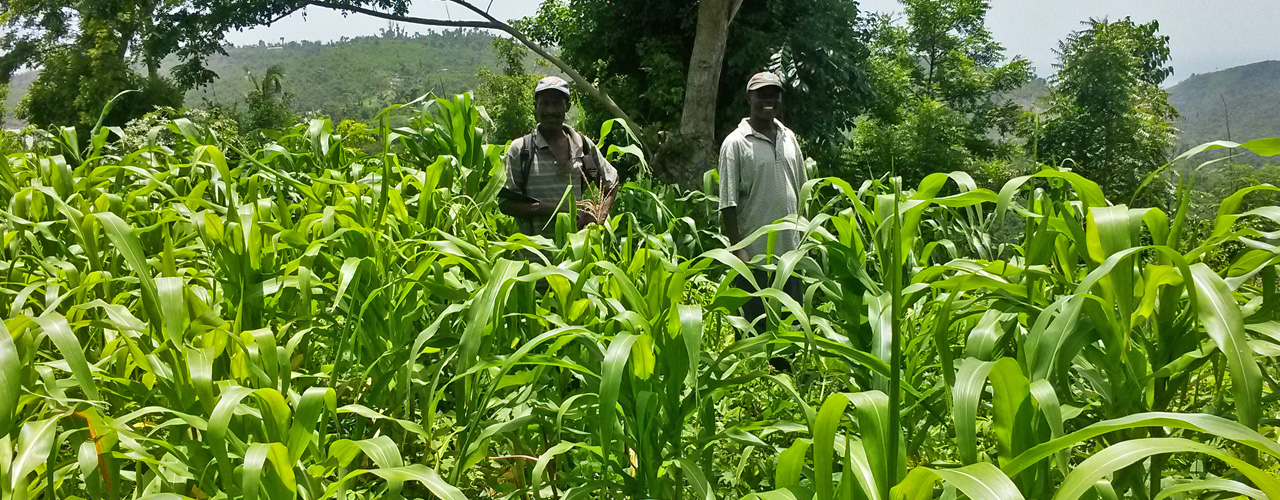
Agriculture is Coming Back in Sassier
Agriculture is the primary business in the Sassier area, with almost every family involved in growing crops and raising animals. Rebuilding agriculture is key after the devastation caused by Hurricane Matthew in October 2016. Fortunately, progress has been very positive.
Here’s an update the current situation and our plans for 2018:
- Farmers beginning to plant the spring crops. Heavy rain in early January damaged the black bean crop, a staple for Haitian families.
- Good news–there are lots of bananas, plantains, sweet potatoes, manioc, etc. More local food available than at any time since the Hurricane. If rains continue, fruit should be widely available again this summer, ameliorating the ongoing hunger issues.
- We continue to work with the farmers on projects begun in 2017, particularly the propagation of yellow yams.
- The two acres of moringa planted last year is going well. The seeds produce high quality oil used in high end cosmetics, while the leaves make medicinal teas and nutritional supplements. Farmers in the area are growing moringa, and will sell leaves and seeds to the processing center.
- The temporary agricultural processing center will begin operation in March, with moringa and breadfruit as the first products. The facility will create value-added products, reducing waste and increasing farmers’ income.
- Our Haitian partners are developing a breadfruit, corn meal, and moringa based porridge mix for school lunch programs, and taste testing it with primary school students. An international NGO is interested in purchasing the porridge mix for their schools. Most Haitian school lunch programs use imported food supplies, rather than locally-grown food.
- Other projects for the first half of 2018 include:
- Creation of model raised bed vegetable gardens on land adjacent to the Parish schools in Sassier, built and maintained by high school students.
- A small scale chicken project to help restore domestic egg production.
- Planting of the first farmer operated breadfruit orchards on land leased from local owners. Produce from the orchards will be shared among the farmers, the landowner and the project.
Working with the Winnetka Rotary Club and Trees That Feed Foundation, we are seeking outside funding for the Agriculture Project, including a global grant from Rotary International.
Our 230 farmers are grateful to you all for your continuing support of the Agricultural Project. You are helping them build a better future for their families and communities.